
In Benin, water use has not been regulated. Furthermore, water management has been sector-based, fragmented and compartmentalised. To change this, action was taken to initiate IWRM in Benin. A baseline study was done followed by drafting of an IWRM action plan. From the experience, the lesson learnt is that advocacy for strengthening political will for supporting the process must be seen as a transversal and on-going action throughout the whole IWRM process.
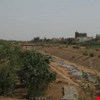
Confronted with serious water issues constraining development, Burkina Faso decided to implement IWRM. The process has been conducted following three key steps: 1) assessing the status, 2) adapting the legal framework to IWRM principles and 3) Identifying key water resources management issues and developing an action plan. The main lesson learnt is that political will at the highest levels should be established at an early stage.
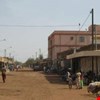
Despite an almost abundance of water, most water users in the South-western region of Burkina Faso regularly face water shortages due to an intensification of irrigated agriculture. Action was consequently taken to set up the Local Water Committee. The lesson learnt is that in the realm of the water sector, it is crucial for the state, local authorities, civil society and the private sector to collaborate to find new potential solutions.
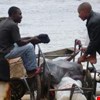
The Kumbo water supply system has always had contested ownership claims. After decades of protest, action was taken and management was transferred to Kumbo Urban Council, resulting in the establishment of an inclusive and participatory community water governance structure. From this, the lesson can be learnt that the command and control paradigm can provoke social and political instability. The case also demonstrates how community based platforms can enhance community mobilisation and participatory governance.
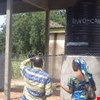
Water resources, in particular conventional rural water supply systems/sources are among the first to be impacted by climate variability. Accessibility to portable water in the sudano-sahelian part of Cameroon is a course for concern given that the population relies mainly on springs, wells and boreholes for the supply of potable water in rural areas.
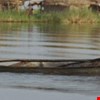
The Lake Ossa complex is faced with unsustainable fishing practices, habitat destruction and deteriorated water quality. These trends have severe negative impact on the livelihoods of people, leading to further unsustainable over-exploitation. To combat these developments, a sustainable livelihood approach has been applied to foster collaboration among stakeholders. From this experience, it is evident that active local NGOs can be vehicles for facilitating dialogue and mobilising different stakeholders.
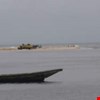
Cameroon actively works with a project to implement IWRM at national level. Action has been taken in a four stage process including the preparation of a national IWRM Action Plan. As a result of these measures, the foundation for IWRM Strategy and Action Plan has been laid and the strategic options identified. The key lesson learnt is that it is crucial to present key facts and results in a concise manner for effective participation in the future.
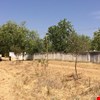
Cameroon is already facing consequences of climate change, including an abnormal recurrence of extreme weather phenomena such as violent winds, high temperatures, and heavy rainfall, which endanger communities’ ecosystems and the services they provide. The consequences of climate change may undermine Cameroon's efforts to reduce poverty, develop a strong, diversified, and competitive economy, and strengthen national unity and consolidate the democratic process. Thus, the National Adaptation Plan for Climate Change (NAPCC) was created to assist the Cameroonian people in facing this important challenge.
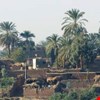
Egypt’s water resources are severely constrained. This calls for increasing the water use efficiency by improving irrigation management practice, as the agriculture sector is the main user of water resources. To address the issue, an Irrigation Improvement Programme was initiated, including a combination of technical changes and infrastructure investment. The case clearly demonstrates the importance of building appropriate institutional structures in parallel to the introduction of technical changes.
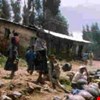
Driven by the Water Resource Directorate of the Ministry of Land, Water and Environment, Eritrea initiated IWRM implementation in 2005. Several steps were taken including the drafting of a water situation analysis report, identifying strategic areas and major gaps for IWRM implementation, and completing an IWRM Action Plan. The lesson which should be drawn from this case study is the importance of proper management of the planning process and building capacity for IWRM.